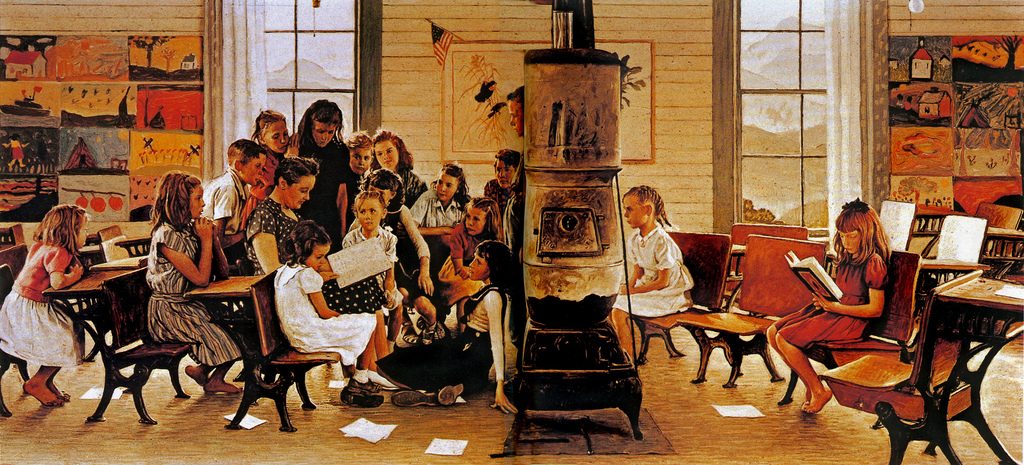Blog Post
The public school system will corrupt your children
By Jonathon Van Maren
July 11, 2018 (LifeSiteNews) — Across North America, the debate surrounding sex education continues to swirl through the schools. Parental protests are popping up in British Columbia to voice disagreement with the SOGI curriculum, Parents as First Educators are pushing the Doug Ford government to roll back the radical sex-ed of the previous Liberal government, and private religious schools are battling the provincial government of Alberta in court to keep them from forcing their LGBT agenda into the independent sphere, as well. Across the United States, small pockets of parents are also doing battle with the powerful LGBT lobby that is steamrolling its way through the school system, demanding that their ideology be taught to other people’s children—and usually succeeding.
It is disturbing to stop and realize what is now considered too controversial for children, and conversely what is considered appropriate for children. Laura Ingalls Wilder, for example, has just had her name stripped from a prestigious award for children’s literature because there are passages in her books that our politically correct elites consider to be racist, or at least culturally insensitive. Interestingly, Wilder was herself a teacher, obtaining her teaching certificate in 1882 and signing on to teach a one-room schoolhouse full of children in the Dakota Territory at the age of only fifteen years old. Her mother, Caroline Quiner, was also a schoolteacher when she met and married Charles Ingalls (known to generations of children simply as “Pa”) in 1860.
It is hard to fathom the teenage Laura Ingalls or Caroline Quiner teaching the pioneer children in their little schoolhouses the sorts of things that are being forced into the curriculum by radical activists these days, but in 2018 the pioneers are out and the drag queens are in. It made me recall a thought experiment conducted by Anthony Esolen in his seminal culture war manifesto Out of the Ashes: Rebuilding American Culture, where he detailed the level of education children once received in such schoolhouses: Poetry, Scripture, history, and even some Greek and Latin. (This was real history, he emphasized, not the sort of grievance-mongering that makes up much of today’s watery social studies classes.)
To illustrate the difference between then and now, Esolen asked his readers to imagine L.M. Montgomery’s Anne of Green Gables, who became a teacher in a one-room schoolhouse on Prince Edward Island, where “the rich red clay was good for growing potatoes and serious Presbyterians,” being asked by some Ottawa bureaucrat to begin teaching the theories of gender fluidity to her young charges. If she protested informing the little girls in the class that they could become little boys (if they decided to be) and vice versa, Anne Shirley could find herself called a bigot, abruptly dismissed, and replaced by a teacher Esolen dubs “Susie of the Sex Shop,” who is altogether too enthusiastic about teaching these sorts of things to children. Just imagine, Esolen writes, a decent and common-sensical people being faced with such teachers:
Try to imagine explaining to the old farmers of Prince Edward Island the need to teach small children how to insert, safely of course, antiseptically of course, their fingers or tongues or other protuberances into the orifice of another kid of ambiguous sex, including the anus. It is not that they would disagree with you. It is not that they would have an alternative opinion about behavior that makes old-fashioned sodomy look like a peck on the cheek. It is that they would think you had lost your mind. They would believe that you were suffering a terrifying moral and psychological illness, nigh unto demonic possession, perhaps well past it. Would they let you speak to their children? They would not want you to speak to their parents or friends or anybody, not because they would be afraid that you might persuade or entice one of them, but merely to spare their loved ones the experience of something so gross, so wicked, so repulsive, so sad. They themselves, in future years, would let the memory of it drop into the darkness and the silence. You do not make scrapbooks of slime.
Esolen’s magnificent contempt may be jarring to some, but only because we have been lulled into forgetting a simpler time when schools sought to educate children rather than indoctrinate them. I collect antiquarian books, and I have a number of old school readers from the late 1800s and early 1900s. A brief perusal of these books will reveal children reading things before adolescence that now often do not get introduced these days until university-level English classes, if they get introduced at all. Those children often only went to school for a few years, but learned more in those few years than those who leave our bleak public institutions thoroughly steeped in the ideologies of the moment but utterly disconnected from and unaware of the great canon and history of Western Civilization.
READ THE REST OF THIS COLUMN AT LIFESITENEWS.COM









So very well articulated!